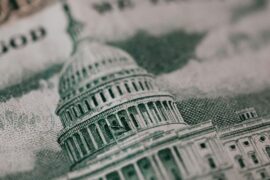This article may contain references to products or services from one or more of our advertisers or partners. We may receive compensation when you click on links to those products or services. Nonetheless, our opinions are our own.
The information presented in this article is accurate to the best of our knowledge at the time of publication. However, information is subject to change, and no guarantees are made about the continued accuracy or completeness of this content after its publication date.
Your credit score plays a crucial role in your financial life, affecting your ability to secure loans, credit cards, and favorable interest rates. A bad credit score can create obstacles when trying to achieve your financial goals.
In this blog post, we’ll explore what is considered a bad credit score and provide actionable steps you can take to fix it, putting you on the path to better financial health.
- Understanding Credit Score Ranges
- Factors That Contribute To A Bad Credit Score
- Get A Copy Of Your Credit Report
- Create A Budget And Prioritize Debt Repayment
- Lower Your Credit Utilization
- Set Up Payment Reminders Or Automatic Payments
- Build A Diverse Credit Mix
- Consider A Secured Credit Card Or Credit-Builder Loan
- Limit Hard Inquiries On Your Credit Report
- Be Patient And Consistent
- Conclusion
- Recommended Reads
Understanding Credit Score Ranges
Credit scores typically range from 300 to 850, with higher scores indicating better creditworthiness.
These scores are usually categorized into five ranges:
- Excellent: 800-850
- Very Good: 740-799
- Good: 670-739
- Fair: 580-669
- Poor: 300-579
A bad credit score generally falls within the “poor” range, making it more challenging to secure loans and credit products or access favorable interest rates.
Factors That Contribute To A Bad Credit Score
Several factors can contribute to a bad credit score, including:
- Late or missed payments
- High credit utilization
- Multiple hard inquiries
- Limited credit history
- Defaults, bankruptcies, or foreclosures
Understanding these factors can help you identify areas where you can improve your credit score using credit repair software that automates the entire dispute process.
Get A Copy Of Your Credit Report
To start repairing your bad credit score, obtain a free copy of your credit report from the three major credit bureaus (Equifax, Experian, and TransUnion).
Review your report for any errors, such as incorrect personal information, duplicate accounts, or inaccurately reported late payments. Dispute any errors you find with the respective credit bureau to have them corrected.
Create A Budget And Prioritize Debt Repayment
Establishing a budget can help you manage your finances more effectively and allocate funds towards debt repayment. Prioritize paying off high-interest debt first, such as credit card balances, to reduce the overall interest you pay.
Additionally, make sure you pay all your bills on time, as payment history accounts for 35% of your credit score.
Voted "Best Overall Budgeting App" by Forbes and WSJ
Monarch Money helps you budget, track spending, set goals, and plan your financial future—all in one app.
Get 50% OFF your first year with code MONARCHVIP
Lower Your Credit Utilization
Credit utilization is the ratio of your outstanding balances to your available credit limits. A high credit utilization can negatively impact your credit score.
Aim to keep your credit utilization below 30% by paying off your balances and not maxing out your credit cards.
Set Up Payment Reminders Or Automatic Payments
Late or missed payments can significantly damage your credit score. To avoid this, set up payment reminders or automatic payments for your bills.
This will ensure you make timely payments and help build a positive payment history, which is crucial for improving your credit score.
Build A Diverse Credit Mix
Having a diverse mix of credit, such as revolving credit (credit cards) and installment loans (mortgages, auto loans), can positively impact your credit score.
Lenders like to see that you can manage different types of credit responsibly. If your credit profile only consists of one type of credit, consider diversifying your credit mix by adding a different type of credit account, but only if you can manage it responsibly.
Consider A Secured Credit Card Or Credit-Builder Loan
If you have a bad credit score, you may have difficulty obtaining an unsecured credit card or loan. In this case, consider applying for a secured credit card or credit-builder loan. These products are designed for individuals with low credit scores or limited credit history, helping them establish a positive payment history and improve their credit score over time.
Limit Hard Inquiries On Your Credit Report
Multiple hard inquiries on your credit report can lower your credit score.
Hard inquiries occur when a lender checks your credit report in response to a credit application.
Limit the number of credit applications you submit, and only apply for new credit when necessary to minimize the impact of hard inquiries on your credit score.
Be Patient And Consistent
Improving your credit score takes time and consistent effort. Make a long-term commitment to responsible credit habits, such as timely bill payments, managing debt, and maintaining a low credit utilization.
As negative items on your credit report age, their impact on your credit score will diminish. By staying disciplined and patient, you’ll see your credit score improve over time.
Conclusion
A bad credit score can be a significant obstacle in achieving your financial goals. However, by understanding the factors that contribute to a bad credit score and implementing the steps outlined in this blog post, you can work towards repairing your credit and improving your financial health. Remember that building a strong credit history takes time, patience, and commitment. With dedication and persistence, you can turn your bad credit score into a good one, opening doors to new financial opportunities and a brighter financial future.

Reviewed and edited by Albert Fang.
See a typo or want to suggest an edit/revision to the content? Use the contact us form to provide feedback.
At FangWallet, we value editorial integrity and open collaboration in curating quality content for readers to enjoy. Much appreciated for the assist.
Did you like our article and find it insightful? We encourage sharing the article link with family and friends to benefit as well - better yet, sharing on social media. Thank you for the support! 🍉
Article Title: What Is A Bad Credit Score And How Do You Fix It?
https://fangwallet.com/2023/04/20/what-is-a-bad-credit-score-and-how-do-you-fix-it/The FangWallet Promise
FangWallet is an editorially independent resource - founded on breaking down challenging financial concepts for anyone to understand since 2014. While we adhere to editorial integrity, note that this post may contain references to products from our partners.
The FangWallet promise is always to have your best interest in mind and be transparent and honest about the financial picture.
Become an Insider

Subscribe to get a free daily budget planner printable to help get your money on track!
Make passive money the right way. No spam.
Editorial Disclaimer: The editorial content on this page is not provided by any of the companies mentioned. The opinions expressed here are the author's alone.
The content of this website is for informational purposes only and does not represent investment advice, or an offer or solicitation to buy or sell any security, investment, or product. Investors are encouraged to do their own due diligence, and, if necessary, consult professional advising before making any investment decisions. Investing involves a high degree of risk, and financial losses may occur including the potential loss of principal.
Source Citation References:
+ Inspo












































